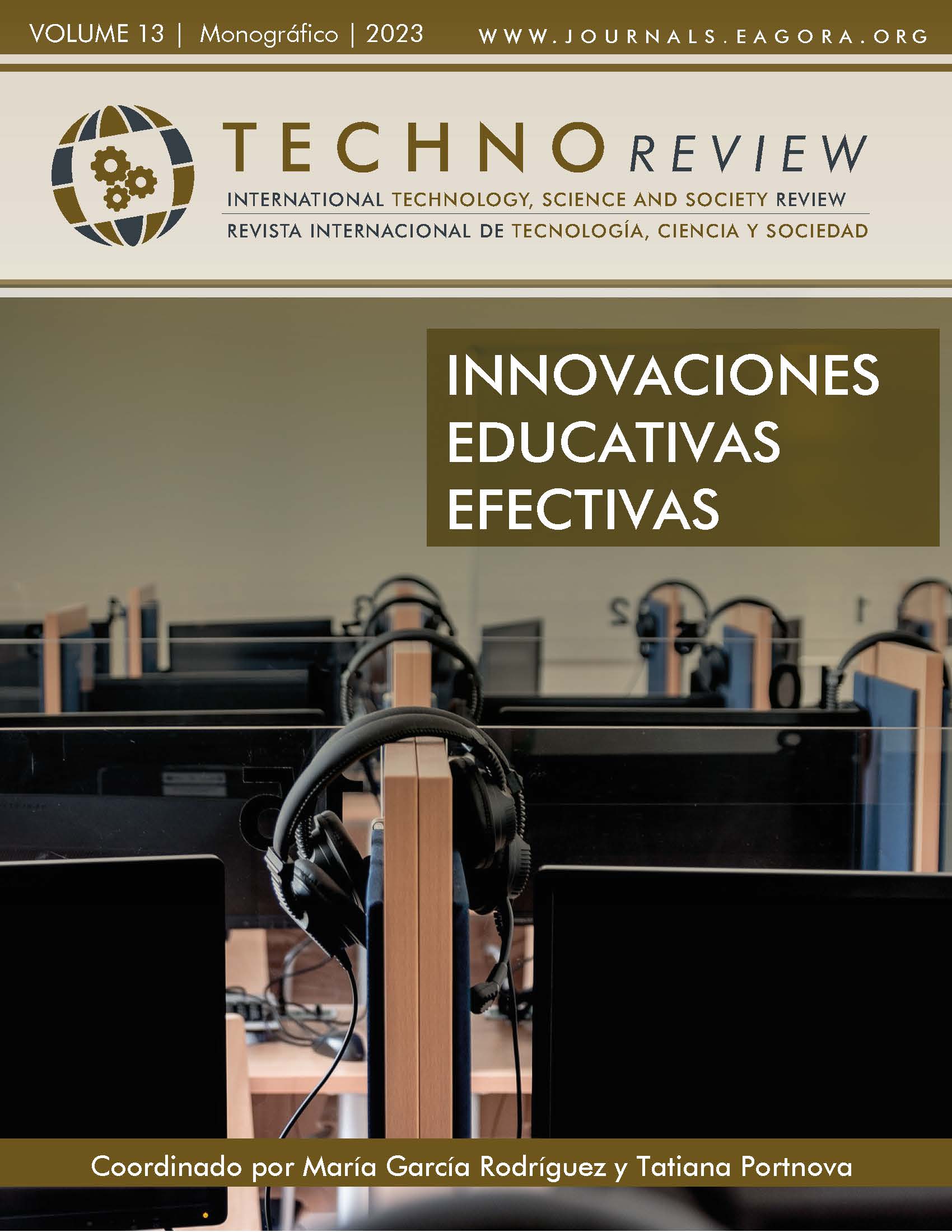Learning science through art: the atelier as an opportunity for teaching innovation
DOI:
https://doi.org/10.37467/revtechno.v13.4792Keywords:
Didactics, Art and Science, Innovation, Atelier, Education, Aesthetic, LearningAbstract
The objective of our work is to analyze different scientific objects and study possible didactic strategies conveyed by the atelier device. We will use as a methodology the survey of educational experiences, and scientific concepts suitable for the stages of childhood, which we will cross with some key definitions used by different artists and movements. We will focus on those strategies that artistic practice helps to link with pedagogical practices, in order to propose some methodologies of didactic innovation. We propose that education can take the active methodology and experimentation of art, of questioning and reflection that are at the center of contemporary artistic practices, with pedagogical purposes that aim at a better understanding of some relevant scientific concepts and phenomena.
References
Abad, J. (2006). La escuela como ámbito estético según la pedagogía reggiana. Aula de Infantil, 10-16
Bozal, V. (1966). Aspectos educativos del arte contemporáneo, Revista Española de Pedagogía, Nº 93, URL: https://revistadepedagogia.org/
Bauman, Z. (2000). Liquid Modernity. Polity Press.
Foster, H. (2001). El retorno de lo real. La vanguardia a finales de siglo. Akal
Hernández Sánchez, D. (2008). Cómo hacer cosas con cadáveres, URL: http://www.virose.pt/vector/b_18/sanchez.html
Hoyuelos, A. (2020). Loris Malaguzzi. Una biografía pedagógica. Ediciones Morata DOI: https://doi.org/10.12968/nuwa.2020.4.26
Hoyuelos, A. (2018). Niños, niñas y cultura artística: dibujos y otras expresiones de la cultura infantil. Laplage em Revista (Sorocaba), vol.4, n. Especial, set.- dic., pp.181-204, DOI https://doi.org/10.24115/S2446-622020184especial595p.181-204 DOI: https://doi.org/10.24115/S2446-622020184especial595p.181-204
Hoyuelos, A. (2013). La estética en el pensamiento de Loris Malaguzzi. Octaedro
Hoyuelos, A. (2007). Documentación como narración y argumentación, Aula de Infantil, N°39, pp.5-9
Hoyuelos, A. (s. f.). Los tiempos de la infancia, URL https://momoweb.files.wordpress.com/2011/07/alfredo-hoyuelos.pdf.
Hoyuelos, A. (2005). La cualidad del espacio-ambiente en la obra pedagógica de Loris Malaguzzi, en Isabel Cabanellas y otros. Territorios de la infancia. Diálogo entre arquitectura y pedagogía. Editorial GRAÓ, pp. 154-166.
Malaguzzi, L. (1993). Your Image of the Child: Where Teaching Begins, URL: https://www.reggioalliance.org/downloads/malaguzzi:ccie:1994.pdf
Nancy, J. L. (2004). La representació n prohibida, Fractal no 34, julio-septiembre, 2004, añ o IX, volumen IX, pp. 39-74
Popper, F. (1989). Arte, acción y participación. El artista y la creatividad de hoy. Akal.
Rinaldi, C. (2014). La pedagogí a de la escucha: La perspectiva de la escucha desde Reggio Emilia. Traducció n: Emy Denis Gonzá lez, URL: http://www.bama.org.ar/
Turégano, P. (2006). Una interpretación de la formación de conceptos y su aplicación en el aula. Ensayos, (21), pp. 35-48
Vecchi, V. (2013). Arte y creatividad en Reggio Emilia. El papel de los talleres y sus posibilidades en educación infantil. Morata.
Vinner, Sh. & Hershkowitz, R. (1983). On concept formation in geometry. Zentralblattfür Didaktik der Mathematik, 83(1), pp. 20-25
Vinner, Sh. (1991). The role of definitions in the teaching and learning of mathematics. En: D. Tall (Ed.), Advanced mathematical thinking. Dordrecht. Kluwer, pp. 65-81 DOI: https://doi.org/10.1007/0-306-47203-1_5
Downloads
Published
How to Cite
Issue
Section
License
Those authors who publish in this journal accept the following terms:
- Authors will keep the moral right of the work and they will transfer the commercial rights.
- After 1 year from publication, the work shall thereafter be open access online on our website, but will retain copyright.
- In the event that the authors wish to assign an Creative Commons (CC) license, they may request it by writing to publishing@eagora.org








